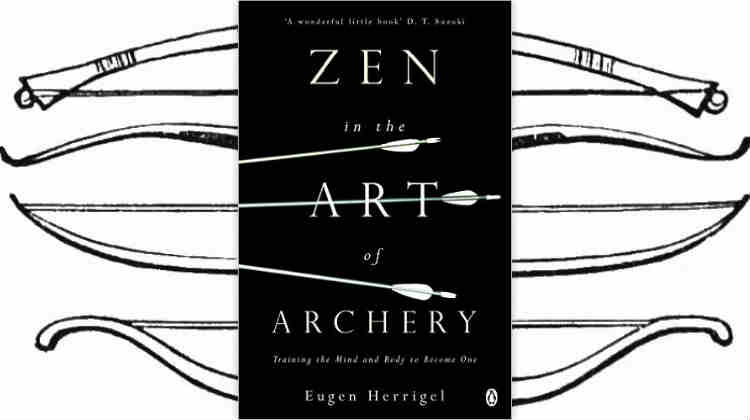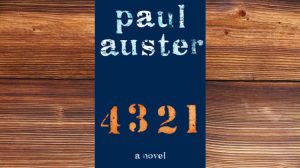
I have read so many books about the practice of Zen Buddhism that it is difficult to choose a particular one that influenced me. And in fact I read Eugen Herrigel’s thin volume after I had read four or five dozen others, and after the moon of my own passion for the subject had waned. But the majority of the earlier books quickly became shadows, mere echoes of Zen in the Art of Archery. And not only because it is the first book to use the iconic title, copied by enthusiasts of everything from motorcycle maintenance to foosball.
Herrigel’s book focuses on the author’s experience learning the religious ritual of archery. Yes, religious ritual, because in modern Japan archery is no longer a sport or combative skill. It is an “artless art” that brings the archer into purposeless action. He must become “simultaneously the aimer and the aim, the hitter and the hit…an unmoved center.” The book takes us through the process of learning this art, as Herrigel learns it himself from his master.
He discovers quickly that firing the arrows into the target is the easy part. Doing it properly, effortlessly, with Zenlike confidence and relaxation was the difficult part. How can we do that? “By letting go of yourself,” his master tells him, “leaving yourself and everything yours behind you so decisively that nothing more is left of you but purposeless tension.” Herrigel struggles with this for years, “the hardest schooling of my life,” but finally destroys “the last traces of any preoccupation with myself and the fluctuations of my mood.” The bow draws, the arrow hits, and he can no longer separate himself from his action. He is the bow, the arrow, the target, and the process connecting them all.
This simple but moving book helped me understand more deeply and surely the practice of Zen than any other. Indeed, that is what so many other books muddle or blur. Zen Buddhism is a practice, not a belief. Whether in a monastery or at an archery range, an unsui learns this quickly and never forgets. I have found my own practice, not in archery like Herrigel, but in other arts, and wish sometimes that he had not written this book. Because if I try to write my own Zen in the Art of book, my effort will no doubt seem like another of those pale, ghostly attempts to match it.




Leave a Reply